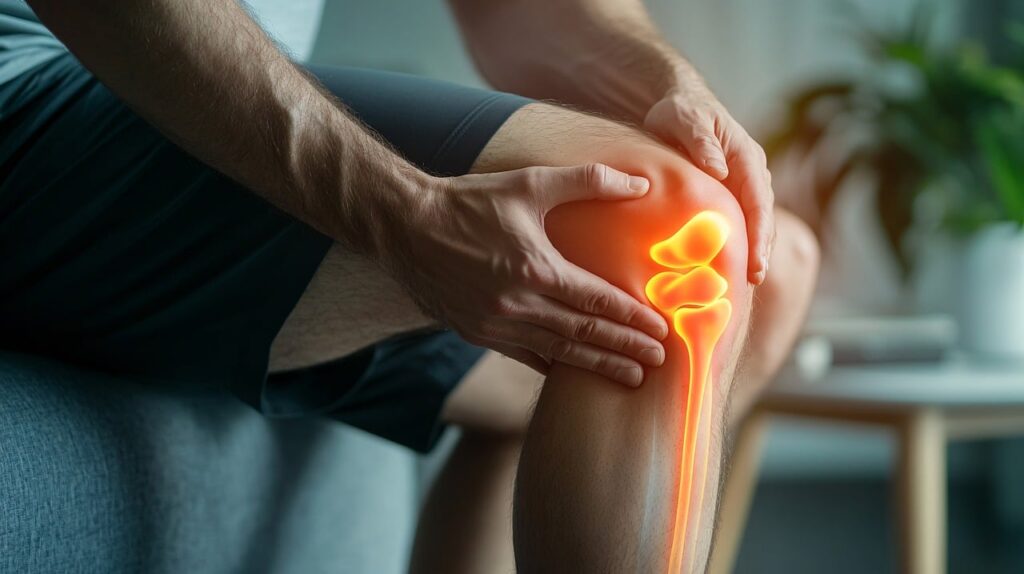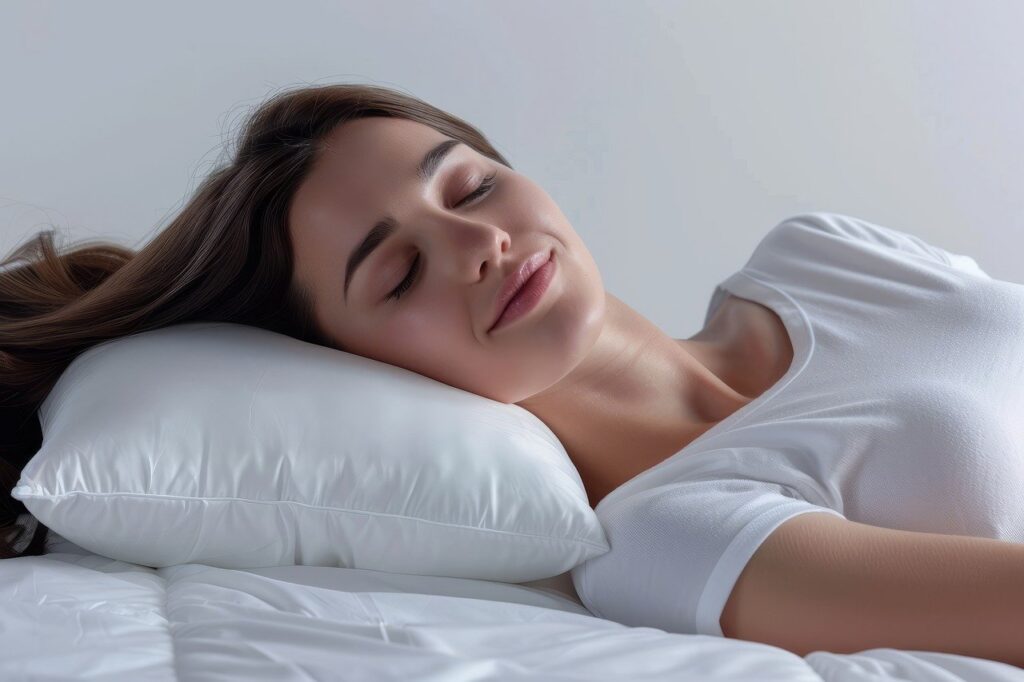Knee pain is one of the most common complaints among people of all ages, affecting mobility, lifestyle, and overall quality of life. Whether it’s due to age-related degeneration, injury, or underlying conditions like arthritis, knee pain can be debilitating. While conventional treatments such as pain relievers, physical therapy, or surgery may offer temporary relief, many people are now turning to Ayurvedic medicine for a holistic, long-term solution to their knee problems.
Ayurveda, the ancient system of medicine from India, takes a unique approach to treating knee pain, emphasizing the balance of body, mind, and spirit. According to Ayurveda, knee pain is a result of imbalances in the body’s doshas (Vata, Pitta, and Kapha), and treatments focus on restoring harmony within these energies. By addressing the root causes of pain, Ayurveda not only alleviates discomfort but also promotes overall well-being.
Symptoms of Knee Pain
Knee pain can manifest in various ways, and the severity of the symptoms can range from mild discomfort to intense pain. Some of the common symptoms include:
- Ache or dull pain in the knee joint, especially after prolonged activity or rest.
- Swelling or inflammation around the knee.
- Stiffness, making it difficult to bend or straighten the knee fully.
- Heat or redness around the joint, particularly in cases of acute injury or inflammation.
- Weakness or instability, leading to difficulty in walking or climbing stairs.
- Popping or cracking sounds when moving the knee joint.
If these symptoms persist for more than a few days or worsen, it’s essential to consult a healthcare provider to identify the underlying cause.
Causes of Knee Pain
The causes of knee pain are numerous and can vary based on age, activity level, and overall health. Some of the most common reasons include:
- Osteoarthritis: Degenerative joint disease due to wear and tear of cartilage, often seen in older individuals.
- Rheumatoid Arthritis: An autoimmune condition causing inflammation in the joints.
- Injury or Trauma: Accidents or sports injuries can lead to ligament sprains, fractures, or cartilage tears.
- Bursitis: Inflammation of the fluid-filled sacs (bursae) around the knee joint, often due to repetitive motion.
- Tendinitis: Inflammation of the tendons around the knee, often caused by overuse or strain.
- Gout: A form of arthritis caused by the buildup of uric acid crystals in the joints.
- Obesity: Extra weight puts increased stress on the knee joints, leading to pain and wear over time.
- Poor Posture or Alignment: Misalignment of the knee joint due to incorrect posture or muscle imbalances.
Ayurvedic Treatment for Knee Pain
Ayurvedic medicine offers a holistic approach to treating knee pain by addressing its root causes and imbalances in the body’s doshas. By utilizing natural therapies, herbal remedies, and lifestyle changes, Ayurveda works to reduce inflammation, improve joint flexibility, and restore balance to the body. Here are some Ayurvedic treatments commonly used for knee pain:
1. Diet and Lifestyle Changes
In Ayurveda, the right diet and lifestyle play a crucial role in managing joint health. To reduce knee pain, Ayurveda recommends:
- Anti-inflammatory foods: Including turmeric, ginger, garlic, and leafy greens can help reduce inflammation in the body.
- Healthy fats: Consuming ghee (clarified butter), sesame oil, and coconut oil helps lubricate the joints and reduce dryness.
- Vata-pacifying foods: Since Vata dosha (associated with dryness and coldness) is often responsible for joint pain, foods that are warm, moist, and grounding, such as soups, stews, and whole grains, help balance Vata.
- Hydration: Drinking enough water and herbal teas ensures the body remains hydrated and supports joint function.
Additionally, Ayurveda emphasizes regular, gentle exercise, such as yoga or swimming, which can strengthen the muscles around the knee and improve mobility without putting excess strain on the joint.
2. Herbal Remedies
Ayurvedic herbs are widely used for treating knee pain and inflammation. Some key herbs and their benefits include:
- Turmeric (Curcuma longa): Known for its powerful anti-inflammatory properties, turmeric contains curcumin, which helps reduce joint pain and swelling.
- Ashwagandha (Withania somnifera): A rejuvenating herb, ashwagandha is effective in reducing inflammation, promoting tissue repair, and boosting overall energy levels.
- Guggul (Commiphora wightii): Often used in Ayurvedic formulations for its anti-inflammatory and analgesic properties, guggul helps in managing osteoarthritis and joint pain.
- Shallaki (Boswellia serrata): A potent herb used for treating chronic joint pain and inflammation, Shallaki is especially effective in reducing symptoms of arthritis.
- Devil’s Claw (Harpagophytum procumbens): Known for its ability to reduce pain and inflammation in the joints, this herb is particularly beneficial for people with arthritis.
These herbs can be consumed in the form of powders, capsules, or extracts, and should be taken under the guidance of an Ayurvedic practitioner for optimal results.
3. External Therapies
Ayurveda also offers external treatments to relieve knee pain and promote healing:
- Abhyanga (Oil Massage): A daily oil massage using warm herbal oils can help lubricate the joints, reduce stiffness, and alleviate pain. Oils such as Mahanarayan oil, Sesame oil, or Eucalyptus oil are often recommended for knee pain.
- Pinda Sweda (Herbal Compress Therapy): This involves the application of a warm herbal poultice or bolus over the knee. The herbs used in the compress, such as turmeric and ginger, have anti-inflammatory properties that help ease pain.
- Kati Vasti: Although traditionally used for lower back pain, this treatment can also be applied to the knee. It involves a ring of dough placed around the knee, filled with warm medicated oil to promote healing and alleviate pain.
4. Panchakarma (Detoxification Therapy)
Panchakarma is a comprehensive detoxification treatment that can help remove toxins (ama) from the body and restore balance. It involves a series of therapies, including:
- Virechana (Purgation): Used to cleanse the body of excess Pitta and toxins.
- Basti (Medicated Enema): Focuses on detoxifying the colon and balancing Vata, which can contribute to joint pain.
- Nasya (Nasal Therapy): Helps clear the sinuses and release toxins, providing relief for inflammatory conditions like arthritis.
Panchakarma can be customized based on individual needs and should be performed under the guidance of an experienced Ayurvedic practitioner.
Ayurvedic Medicines for Knee Pain
Several Ayurvedic medicines are available that are specifically formulated to support joint health and reduce knee pain. Some commonly used Ayurvedic formulations include:
- Rheumartho (Rheumatoid Arthritis Formula): A potent blend of herbs that work together to reduce inflammation and support joint mobility.
- Joint Aid Plus: Contains a combination of herbs like Guggul, Shallaki, and Ashwagandha, known for their anti-inflammatory and pain-relieving properties.
- Rumatone Gold: An Ayurvedic product that combines multiple herbs to treat joint pain, stiffness, and inflammation associated with arthritis.
- Chandraprabha Vati: Often used to treat joint pain and inflammation, especially in conditions like osteoarthritis.
These medicines, when taken consistently, can help alleviate pain, improve flexibility, and restore joint function.
Conclusion
Knee pain can significantly impact your daily life, but Ayurvedic treatment offers a natural and holistic way to address the root causes and provide long-lasting relief. By incorporating Ayurvedic dietary practices, herbal remedies, external therapies, and detoxification processes, you can restore balance to your body and improve joint health. Always consult with an experienced Ayurvedic practitioner before beginning any new treatment regimen to ensure that it is tailored to your specific needs and conditions.
With the power of Ayurveda, you don’t just manage knee pain—you treat the whole body, ensuring your knees—and your overall health—are nurtured for the long run.


